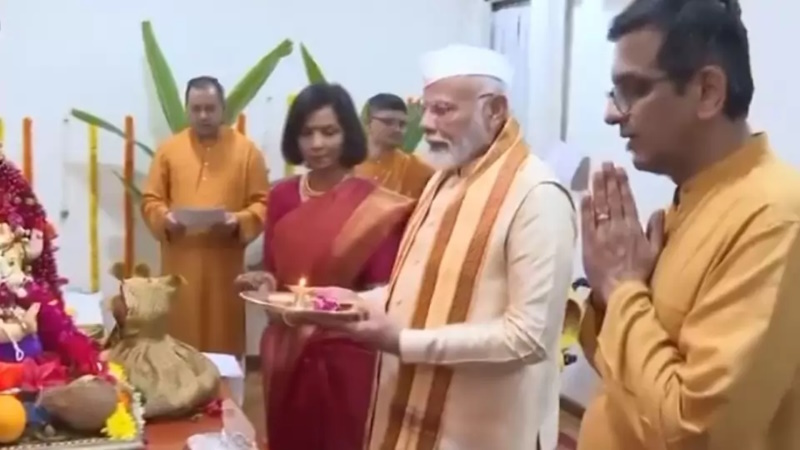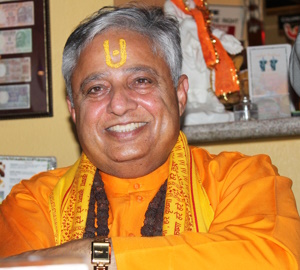 New Delhi: Chief Justice of India (CJI) D.Y. Chandrachud recently addressed criticism regarding Prime Minister Narendra Modi’s attendance at a Ganpati Puja at his residence. Responding to concerns over judiciary-executive interactions, the CJI emphasized a need for “maturity in political discourse,” explaining that social gatherings are a long-standing part of inter-institutional dialogue.
New Delhi: Chief Justice of India (CJI) D.Y. Chandrachud recently addressed criticism regarding Prime Minister Narendra Modi’s attendance at a Ganpati Puja at his residence. Responding to concerns over judiciary-executive interactions, the CJI emphasized a need for “maturity in political discourse,” explaining that social gatherings are a long-standing part of inter-institutional dialogue.
Judicial-Executive Relations at Social Gatherings
Speaking at an event, CJI Chandrachud commented on the nature of such meetings: “The PM visited my residence for Ganpati Puja. There is absolutely nothing wrong as these are continuing meetings between the judiciary and the executive even at social level. We meet at Rashtrapati Bhavan, Republic Day, etc.” Chandrachud clarified that these conversations are not judicial in nature, focusing instead on societal matters and mutual collaboration.
Social Interactions Uphold Institutional Balance
While defending the judiciary’s autonomy, CJI Chandrachud stressed the importance of dialogue between government branches. “We must respect that these dialogues are a part of a robust inter-institutional mechanism,” he added, emphasizing that separation of powers does not equate to social isolation. The CJI dismissed speculations, affirming that judicial matters are excluded from these interactions, underscoring the maturity in constitutional courts to keep professional boundaries intact.
Addressing Concerns on Impartiality
A video shared on social media sparked concerns over the implications of the prime minister’s visit, raising questions about judicial independence. However, CJI Chandrachud reassured the public, stating at a Loksatta lecture in Mumbai, “There is enough maturity among judges of constitutional courts and the heads of the executive to firmly keep aside judicial matters out of the purview of any discussion.”
He reiterated that no deals are made during such engagements, which reflect collaborative governance aimed at national betterment. The judiciary’s commitment to integrity and impartiality, according to Chandrachud, remains uncompromised, and these social interactions serve as part of India’s robust governance framework.




